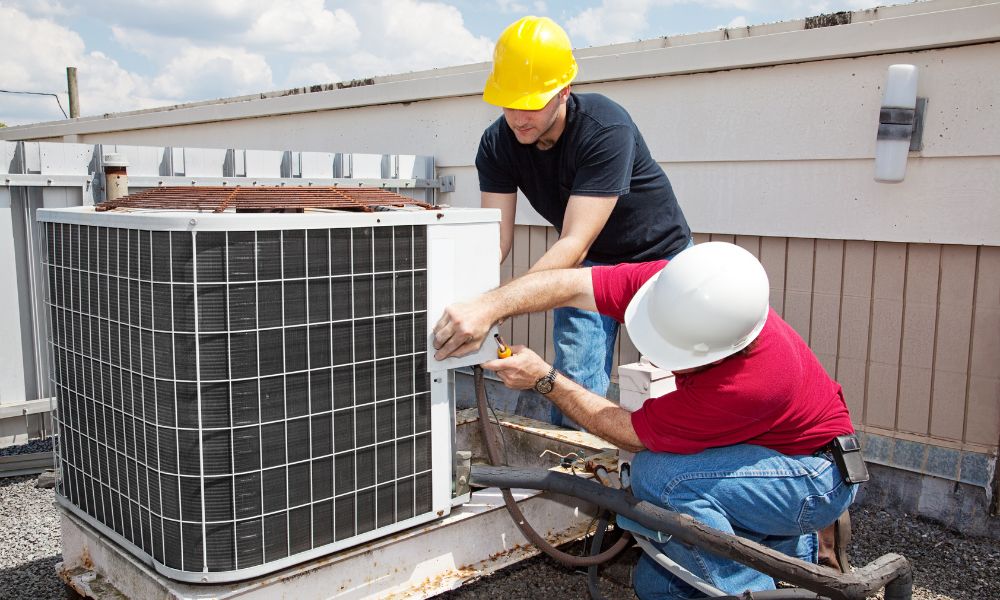You need an HVAC machine to control the airflow and temperature of an industrial building. However, it requires fine-tuning to work as efficiently as possible. While this might seem like a hassle, it’ll be worth it once you start saving money on your energy bill. So without further ado, here are some tips for improving the efficiency of industrial HVACs.
Update Your Equipment
The biggest issue plaguing companies when it comes to HVACs is that their machines are sometimes as old as the building. They usually only replace parts or buy entirely new units when the old ones give out. While this helps save money, it ends up hurting you in the long run.
This is because the technology for HVACs has advanced quite rapidly in recent years with a focus on being more efficient. Old tech doesn’t have the ability to be as efficient as new products, so updating is a good place to start. Even something as simple as upgrading your industrial air filter housing can make a small but noticeable difference. An updated/upgraded air filter housing will allow you to utilize higher efficiency filters making it easy to provide cleaner air to your equipment keeping the coils clean for best heating and cooling transfer as well as meeting new ASHRAE standard 241P “Control of Infectious Aerosols for indoor air quality and to help control the spread of airborne particles. Properly sized housing can allow you to utilize filters with MERV 13 or higher ratings and a properly made housing makes sure that the filters are properly fastened into place so that you get no air bypassing around the edges of your filters.
Utilize Automatic Controls
One of the more important elements you should get for your HVAC system, though, is automatic controls. Trying to regulate heat and cool air manually can be a nightmare. Most people overcompensate when raising or lowering the temperature, which overworks the machine. Plus, not everyone remembers to turn it down or off at night.
Having an automatic system will help with all these issues. It’ll keep temperatures consistent and always shut down when the workday ends. You won’t have to worry about overworking your HVAC any longer.
Set System Boundaries
Of course, you still need a way to monitor automatic systems. If left up to their own devices, they could end up wasting more money by overworking themselves to keep the building at a certain temperature.
Fortunately, these systems allow users to control which rooms need heating or cooling, how high or low the temperature can get, and even how much energy the users want to use. It’s all up to you—just make sure you check how the system runs after making significant changes.
Schedule Maintenance Checks
Finally, the best way to improve industrial HVAC efficiency is to check on it regularly. A dirty or malfunctioning system will use much more energy than a brand-new one to produce similar results.
The best way to avoid this problem is to schedule regular maintenance checks with a trained professional. They’ll be able to quickly figure out what’s wrong if you encounter any issues. Even if you schedule these checks, don’t be afraid to look over your HVAC every so often to see if you notice anything wrong with it, especially if it’s been acting up recently.
